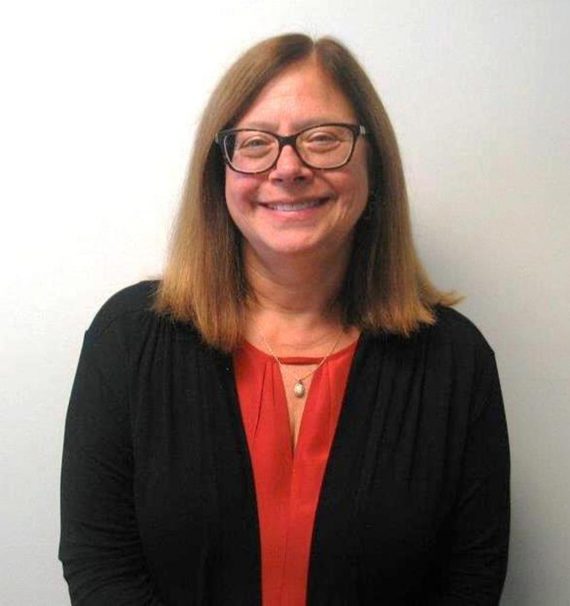 UPDATE: On Friday afternoon (8-4), a spokesperson for Rep. Tim Murphy (R.-Pa.) issued the following statement about Dr. McCance-Katz’s confirmation.
UPDATE: On Friday afternoon (8-4), a spokesperson for Rep. Tim Murphy (R.-Pa.) issued the following statement about Dr. McCance-Katz’s confirmation.
Congressman Murphy looks forward to working with the new Assistant Secretary to fulfill the promises made in the Helping Families in Mental Health Crisis Act. Likewise, now more than ever, it’s crucial to work together to turn the tide on our nation’s opioid and addiction crisis, the worst drug crisis in United States history.
(8-3-17) Dr. Elinore F. McCance-Katz was confirmed by a voice vote this afternoon in the U.S. Senate as the Department of Health and Human Services Assistant Secretary for Mental Health and Substance Abuse.
Rep. Tim Murphy (R-Pa.), who drafted the Helping Families in Mental Health Crisis Act that created the new position, had objected to Dr. McCance-Katz’s nomination when the White House and HHS Sec. Tom Price announced it.
His amended legislation was merged into the 21st Century Cures Act, which was signed into law during the final days of the Obama Administration.
By creating an Assistant Secretary for Mental Health and Substance Abuse, Rep. Murphy said he hoped to give mental health and addiction services a higher prominence in the federal bureaucracy. Murphy, the only practicing psychologist in Congress, began pushing for major federal mental health reforms after the Newtown shootings. He’d backed a different candidate for the post but could not vote since the new job required Senate approval and not confirmation by House members.
As the first ever assistant secretary, Dr. McCance-Katz will be the Trump administration’s defacto mental health and substance abuse czar, whose duties will include overseeing the Substance Abuse and Mental Health Services Administration.
Before being confirmed today, Dr. McCance-Katz was the chief medical officer for the state Department of Behavioral Healthcare, Developmental Disabilities and Hospitals in Rhode Island.
In 2013, she worked as SAMHSA’s first chief medical officer but left the federal government for the Rhode Island position after only two years. In a critical essay published in the Psychiatric Times, Dr. McCance-Katz wrote that SAMHSA’s Center for Mental Health Services, which administers federal mental health programs, ignored serious mental illnesses and evidenced based practices in favor of feel-good recovery programs that were politically popular but did little to help persons diagnosed with debilitating disorders.
In her article, she wrote that SAMHSA was openly hostile toward the use of psychiatric medicine, didn’t focus on helping the seriously mentally ill, and questioned whether bipolar disorder and schizophrenia were even real, arguing that psychosis is just a “different way of thinking for someone experiencing stress.”
Now that Dr. McCance-Katz has been confirmed, HHS Secretary Price is expected to announce who will be appointed to serve on the Interdepartmental Serious Mental Illness Coordinating Committee (ISMICC), which also was created by the 21st Century Cures Act thanks to Rep. Murphy’s original bill. Its purpose will be to evaluate federal programs and advise Congress. That committee will include top cabinet level members as well as 14 non-federal employees, according to its charter.
Federal Membership:
The ISMICC will be composed of the following federal members or their designees: • The HHS Secretary; • The Assistant Secretary for Mental Health and Substance Use; • The Attorney General; • The Secretary of the Department of Veterans Affairs; • The Secretary of the Department of Defense; • The Secretary of the Department of Housing and Urban Development; • The Secretary of the Department of Education; • The Secretary of the Department of Labor; • The Administrator of the Centers for Medicare and Medicaid Services; and • The Commissioner of the Social Security Administration.
Non-federal Membership:
The ISMICC shall also include not less than 14 non-federal public members appointed by the Secretary of which: • At least two individuals who have received treatment for a diagnosis of a SMI; • A parent or legal guardian of an adult with a history of SMI or a child with a history of SED; • A representative of a leading research, advocacy, or service organization for adults with SMI; • At least two members who are one of the following: A licensed psychiatrist with experience treating SMI; A licensed psychologist with experience in treating SMI or SED; A licensed clinical social worker with experience treating SMIs or SEDs; or A licensed psychiatric nurse, nurse practitioner, or physician’s assistant with experience in treating SMIs or SEDs. • A licensed mental health professional with a specialty in treating children and adolescents with a SED; • A mental health professional who has research or clinical mental health experience in working with minorities; • A mental health professional who has research or clinical mental health experience in working with medically underserved populations; • A state certified mental health peer support specialist; • A judge with experience in adjudicating cases related to criminal justice or SMI; 4 • A law enforcement officer or corrections officer with extensive experience in interfacing with adults with a SMI, children with SED, or individuals in a mental health crisis; and • An individual with experience providing services for homeless individuals and working with adults with SMI, children with a SED, or individuals in a mental health crisis.



